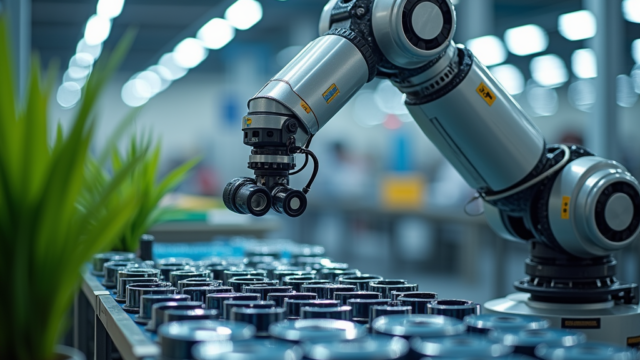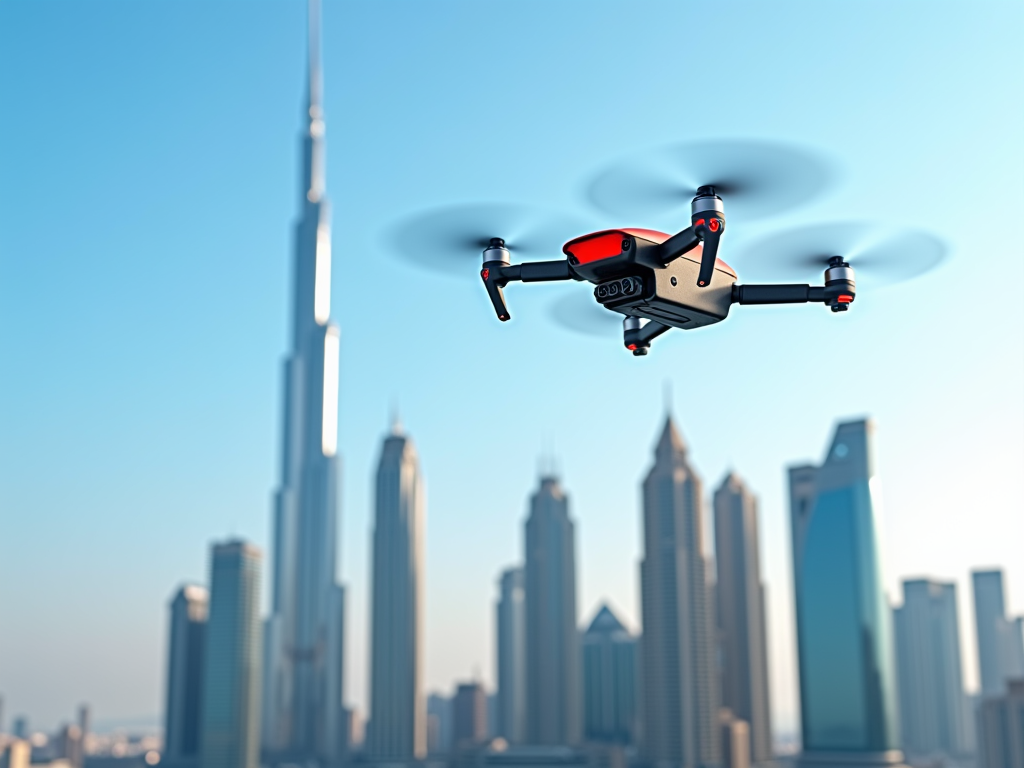The Impact of Robotics and Automation on Jobs in Dubai

The integration of robotics and automation in Dubai presents a transformational shift in the workforce landscape, affecting various sectors significantly. While some jobs may be diminished or eliminated, new opportunities are emerging as a result of technological advancement. This article explores how Dubai is adapting to this wave of change, the challenges faced, the industries most affected, and potential solutions to ensure a balanced approach between technology and employment.
Understanding the Rise of Robotics and Automation

Robotics and automation are no longer just concepts of the future; they are part of the present working environment in Dubai. The city has positioned itself as a hub for innovation, investing heavily in technology to enhance productivity and efficiency across various sectors. Industries such as logistics, tourism, and healthcare are increasingly integrating robotic solutions into their operations. As technologies become more sophisticated, the demand for automation has surged, prompting businesses to rethink their workforce strategies. This shift raises important questions about the overall impact on jobs and employment patterns in the emirate.
Industries Most Affected by Robotics and Automation

Several key industries in Dubai are experiencing significant changes due to robotics and automation:
- Manufacturing: Automation in manufacturing leads to greater efficiency but can displace manual labor jobs.
- Logistics: Automated warehousing systems and drones are transforming how goods are stored and delivered, reducing the need for traditional shipping and handling jobs.
- Retail: Self-checkout kiosks and robotic assistants are on the rise, changing the role of sales staff and cashiers.
- Tourism and Hospitality: Automated check-in/out processes are streamlining operations but reducing the need for frontline customer service roles.
- Healthcare: Robots are aiding in surgeries and patient care, providing assistance while prompting debates about the human element in caregiving.
As automation proliferates, its implications for the workforce cannot be ignored. The potential for job displacement is a primary concern, leading to fears about rising unemployment rates in Dubai. However, this situation is not solely about job loss; it is also about reallocating resources effectively. Here are some workforce implications to consider:
- Job Displacement: Certain manual jobs are likely to be phased out as machines take over repetitive tasks.
- Job Creation: New roles requiring advanced skills in technology, programming, and maintenance are emerging, leading to potential job growth.
- Skills Gap: There is a pressing need for workforce retraining to equip employees for the changing job landscape.
- Economic Adaptation: As industries evolve, so must economic policies and educational frameworks to support new job categories.
Challenges and Opportunities for Workforce Adaptation
While the integration of robotics and automation brings challenges, it also presents a wealth of opportunities that can enhance the labor market in Dubai. Here are a few key challenges and opportunities:
- Reskilling and Upskilling: Education systems need to adapt quickly, providing training programs aimed at current and future job requirements.
- Job Quality and Satisfaction: Automation may lead to more meaningful work, allowing humans to focus on creative, strategic, and interpersonal tasks.
- Partnerships Between Government and Business: Collaboration is essential to ensure a smooth transition to an automated workforce, leveraging public initiatives.
- Promoting Innovation: Encouraging entrepreneurship and innovation will help create new job opportunities beyond traditional sectors.
Conclusion
In summary, the impact of robotics and automation on jobs in Dubai is profound and multi-faceted, posing both challenges and opportunities. While certain jobs are at risk of being replaced, new roles and industries are emerging, necessitating a workforce that is adaptable and skilled in modern technologies. As Dubai continues to embrace automation, a collaborative approach involving re-skilling initiatives, innovative economic strategies, and supportive government policies will be crucial in fostering a balanced job market that integrates humans and machines harmoniously.
FAQ
- Will robotics and automation lead to massive job loss in Dubai?
No, while some jobs may be lost, new opportunities requiring different skills are also created, leading to potential job growth in evolving sectors. - What industries in Dubai are most likely to see the impact of automation?
Key industries include manufacturing, logistics, retail, tourism and hospitality, and healthcare. - How is the government of Dubai supporting job adaptation in light of automation?
The government is focusing on reskilling programs, partnerships with businesses, and fostering innovation to help the workforce adapt to changes. - What skills will be most in demand in the automated workforce?
Skills in technology, programming, data analysis, and interpersonal relations will be increasingly valuable in the job market. - Is automation beneficial for job satisfaction?
Yes, automation can enhance job satisfaction by allowing humans to focus on more engaging and creative work rather than repetitive tasks.

